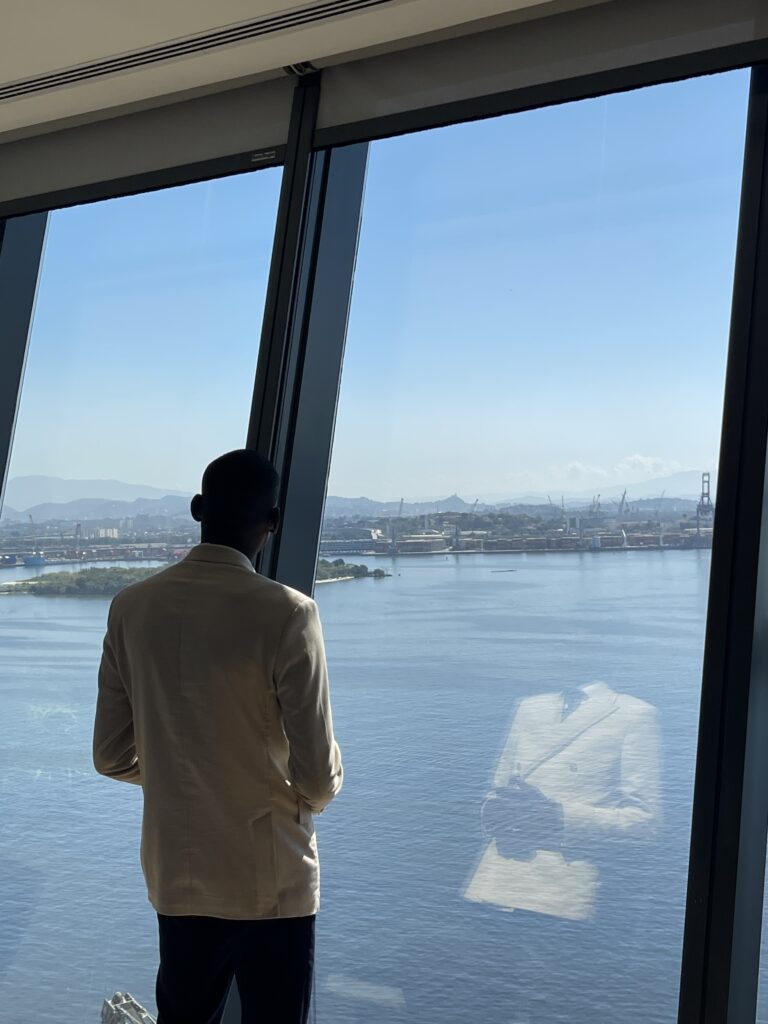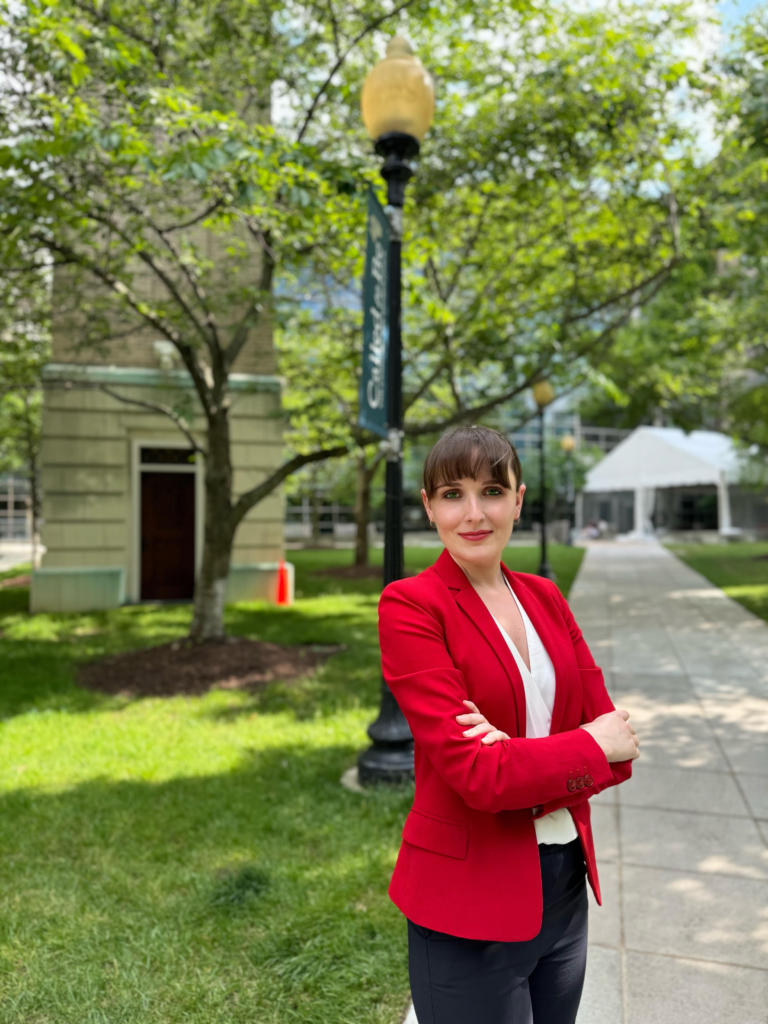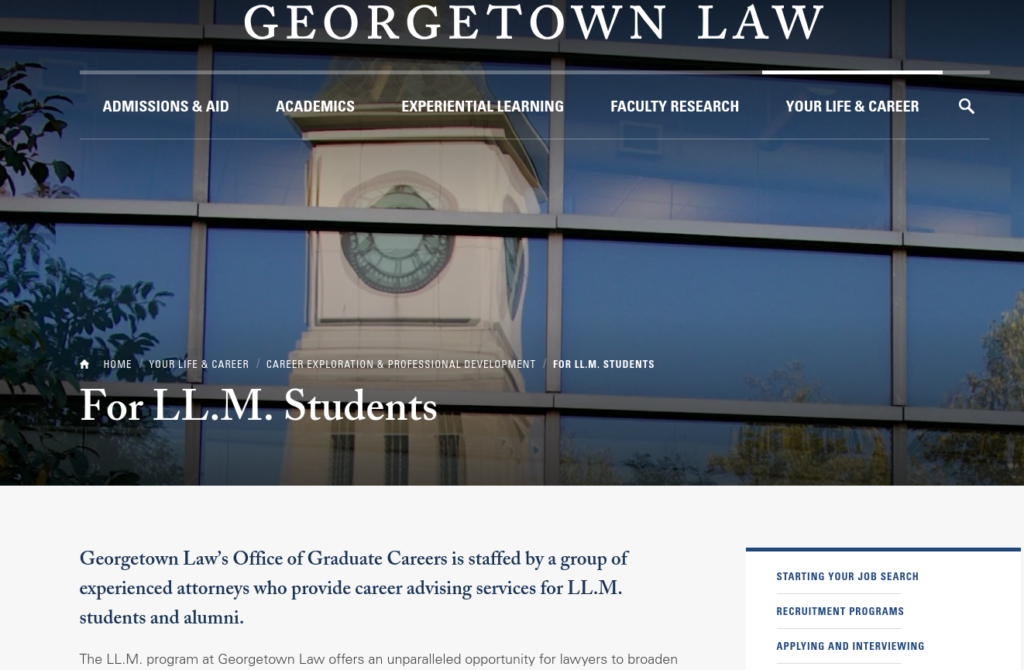Post by Stephen Horowitz, Lecturer of Legal English

Eduany Pedro hails from Palanca, a modest neighborhood in Luanda, the capital of Angola. He is a candidate in the Environmental and Energy Law LLM program at Georgetown where is currently completing the second year of Georgetown Law’s unique Two-Year LLM Program. Eduany has a law degree from Catholic University of Angola and a postgraduate diploma in Law and Oil and Gas Business Management from Agostinho Neto University. You can learn more about him from his LinkedIn profile.
My summer internship at Tauil & Chequer Advogados in association with Mayer Brown (TCMB) in Rio de Janeiro exceeded all my expectations, becoming one of the most enriching experiences of my life. The idea of pursuing an international internship first took root two years ago, during my time in Austin, Texas.

In 2022, after arriving in the U.S., I enrolled in the Academic English Program at the University of Texas at Austin (UT). After a year of intensive language study, I realized that pursuing a Two-Year LL.M. would be the ideal next step for two main reasons: (i) It would provide a comprehensive understanding of the American legal system, which is essential for my career, and (ii) it would offer the opportunity for an international summer internship, enhancing my global legal exposure. I vividly remember the moment I received the email from Georgetown inviting me to join the program—I was attending the International Energy Conference in Miami, organized by the Association of International Energy Negotiators (AIEN), and I couldn’t stop smiling. It was the perfect convergence of events, reinforcing that I was on the right path.

The journey to secure the internship was a focused effort. From the outset of the LL.M. program, I set a clear goal to gain practical experience in the energy sector. I was diligent in attending energy conferences and networking with professionals, ensuring the right people knew my aspirations. Through these efforts and consistent conversations, my former professor Norman Nadorff and my friend Leandro Duarte advised me to apply for a specific internship opportunity. I followed their advice, applied, and was thrilled to receive the positive news.
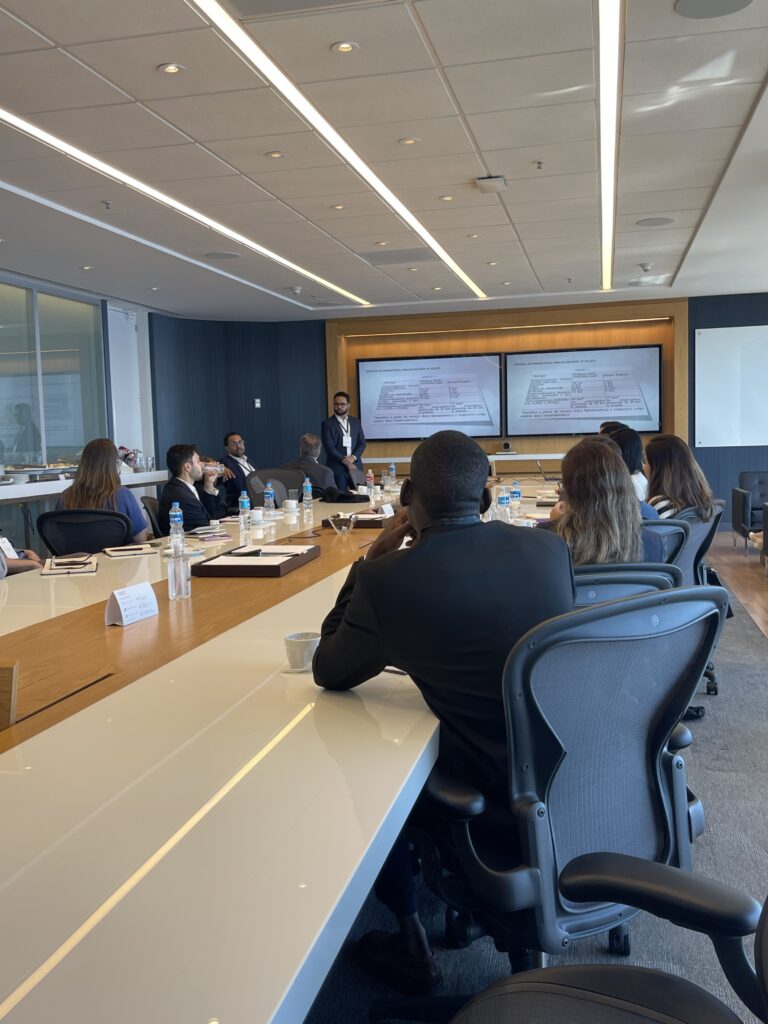
I joined the Oil & Gas Practice Team at TCMB in Rio de Janeiro, Brazil. Working alongside many professionals I had already connected with through international conferences and professional platforms like LinkedIn. My responsibilities included conducting legal research, drafting energy contracts, assisting in creating business plans for clients interested in investing globally, and preparing legal reports and memos. My previous legal experience, combined with my first academic year at Georgetown, proved invaluable. For example, the Contract Drafting course with Professor Dundon directly aligned with my first assignment at the firm. I was tasked with reviewing an oil and gas contract, and the project was almost identical to my final exam in Professor Dundon’s class. Although I was initially nervous because a partner personally assigned me the task, I recalled that I had earned an ‘A’ in the course and used the same approach, adapting the content to the specific legal regime involved.

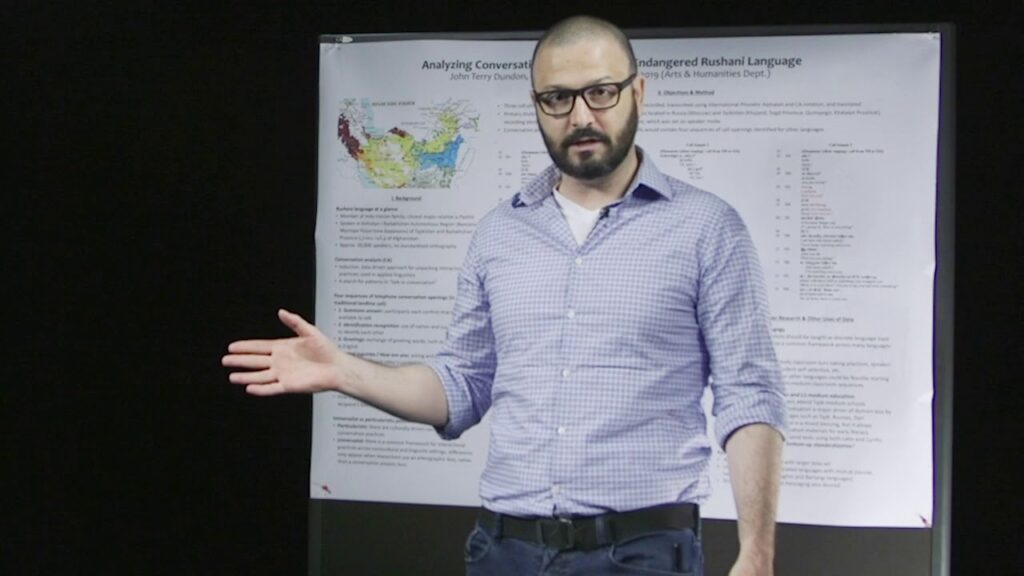

Additionally, skills from my U.S. Legal Research, Analysis, and Writing course with Professor Hoffman and Legal Writing with Professor Lake were more beneficial than I had anticipated, allowing me to contribute effectively and meet tight deadlines.
My experience at the law firm exceeded my expectations in several ways:
- As a native Portuguese speaker, I naturally expected that most of my work in Brazil would be conducted in Portuguese. However, to my surprise, nearly all of my assignments were in English. This unexpected shift not only challenged me but also provided a great opportunity to refine my professional English skills, which made the experience even more rewarding.
- I expected the firm, given its size and reputation, to have a highly pressured, perhaps even distant, working environment. Instead, I found the atmosphere to be friendly, collaborative, and supportive. The partners, contrary to the stereotype of “Big Law,” were approachable and down-to-earth.
- The workload was intense, but the dedication and enthusiasm of my colleagues were inspiring. I often found myself working late into the night alongside peers, and no one ever complained. The shared sense of purpose and drive to excel, especially among those younger than me, was both fascinating and motivating.
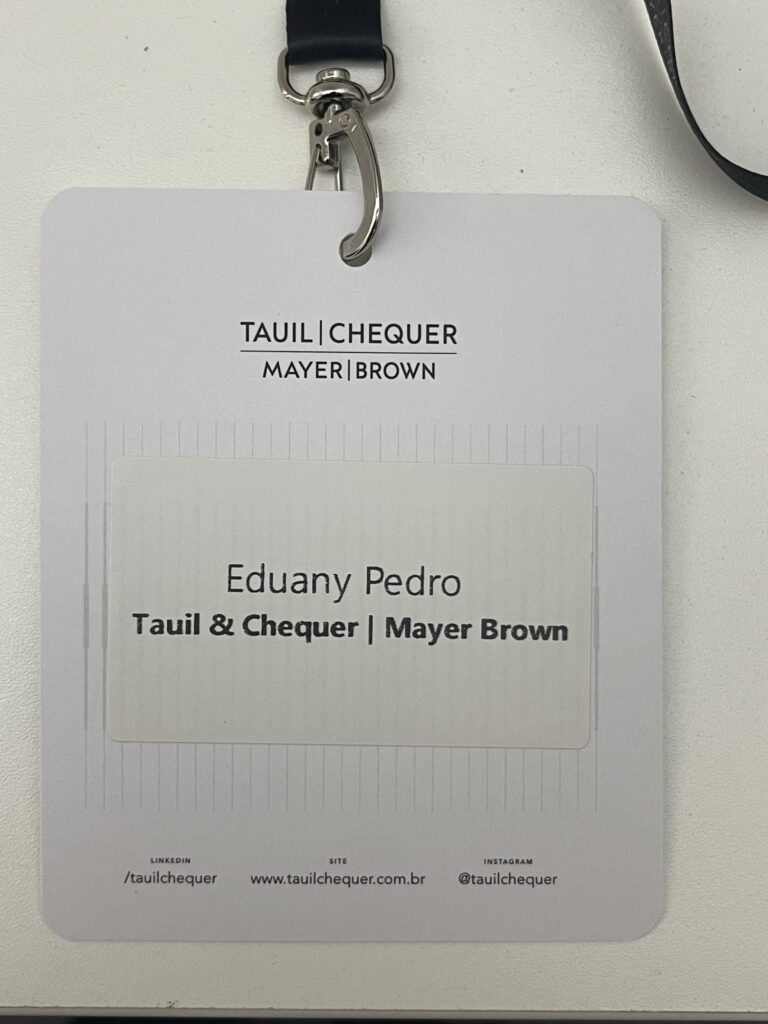
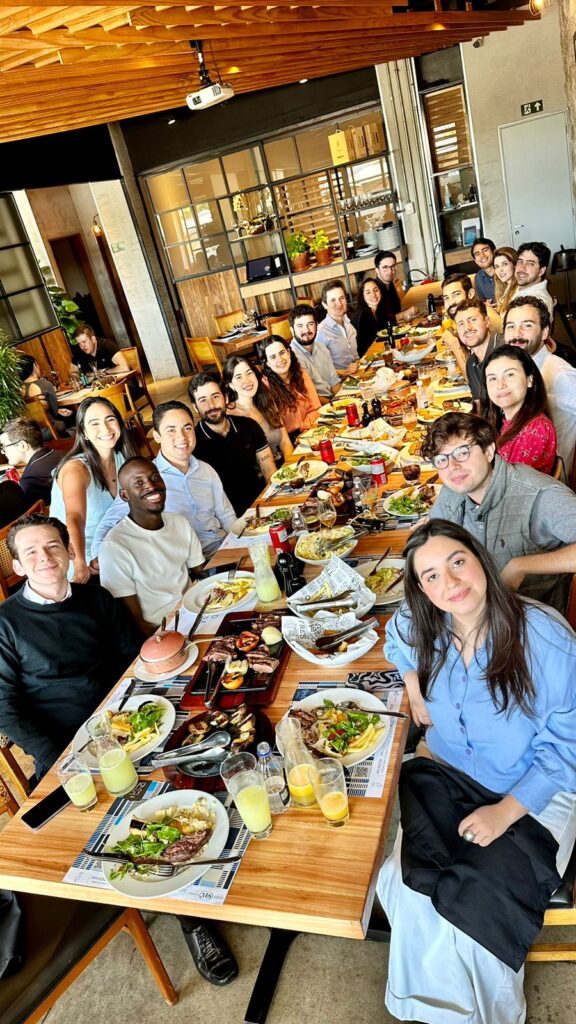
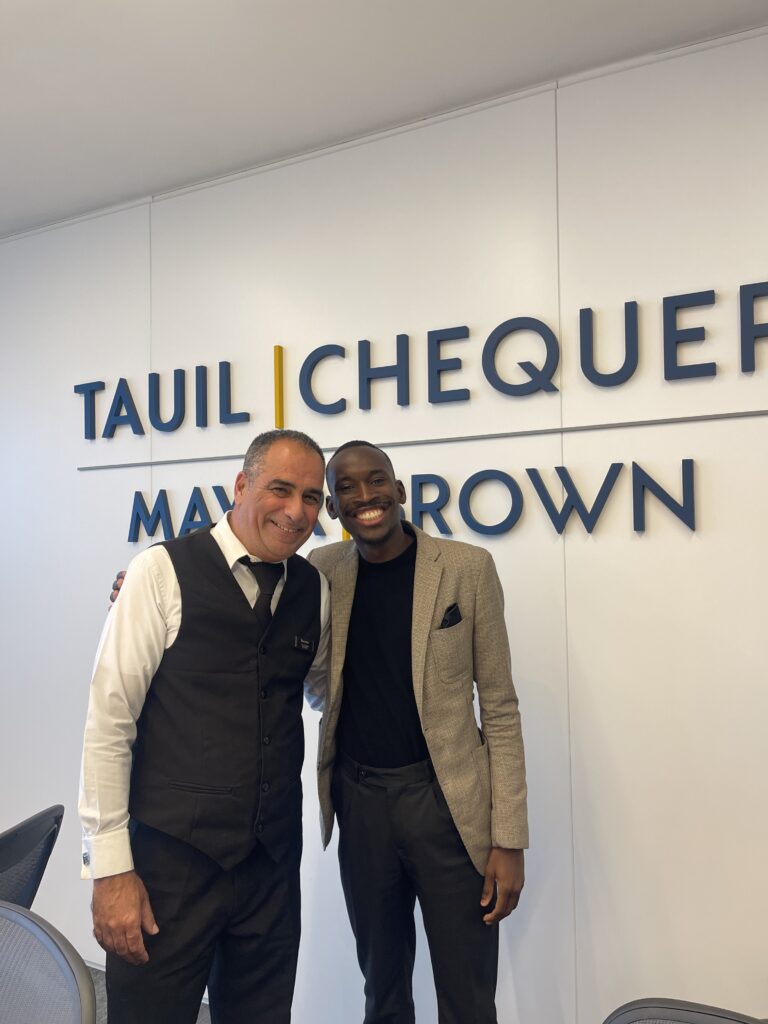
In conclusion, my internship at TCMB not only solidified my professional skills but also reshaped my perceptions of the legal industry. The unexpected challenges, such as working extensively in English and the fast-paced environment, pushed me to grow in ways I hadn’t anticipated. The collaborative culture and the dedication of my colleagues made the experience truly fulfilling. This journey reaffirmed my passion for international energy law and demonstrated the value of seizing opportunities, building meaningful connections, and continuously pushing my own boundaries. I feel more confident and prepared for the next phase of my career, with a clearer vision of the impact I want to make in the global legal landscape.
